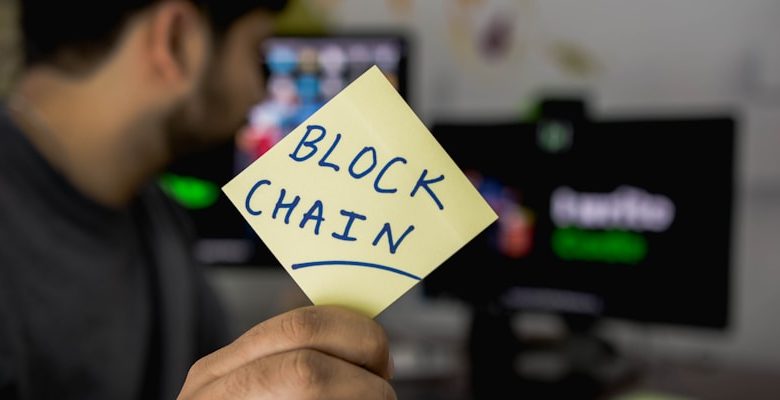How Blockchain Is Enabling Secure and Transparent Voting Systems

- The rise of blockchain technology in revolutionizing voting systems
- Enhancing security and transparency in elections through blockchain
- How blockchain is reshaping the future of voting
- Exploring the benefits of using blockchain for secure voting
- Ensuring trust and integrity in elections with blockchain technology
- The potential of blockchain to transform the electoral process
The rise of blockchain technology in revolutionizing voting systems
Blockchain technology is playing a pivotal role in revolutionizing voting systems around the world. By leveraging the decentralized and immutable nature of blockchain, voting processes can become more secure and transparent than ever before. This technology has the potential to address many of the challenges and vulnerabilities present in traditional voting systems, such as fraud, tampering, and lack of trust in the results.
One of the key advantages of using blockchain for voting is the enhanced security it provides. Each vote is encrypted and recorded on a tamper-proof ledger, making it virtually impossible for any unauthorized party to alter the results. This ensures that the integrity of the voting process is maintained, and that every vote is accurately counted.
Furthermore, blockchain enables greater transparency in voting systems. Since all transactions are recorded on a public ledger that is accessible to all participants, voters can verify that their votes have been cast as intended and have been included in the final tally. This level of transparency helps to build trust in the voting process and ensures that the results are fair and accurate.
In addition to security and transparency, blockchain technology also offers increased efficiency in voting systems. By automating many of the processes involved in voting, such as verification and counting, blockchain can help to streamline the entire voting process and reduce the likelihood of human error. This can lead to faster results and a more seamless voting experience for all participants.
Overall, the rise of blockchain technology in revolutionizing voting systems holds great promise for the future of democracy. By harnessing the power of blockchain, we can create voting systems that are more secure, transparent, and efficient, ultimately leading to a more trustworthy and inclusive electoral process for all.
Enhancing security and transparency in elections through blockchain
Blockchain technology can play a crucial role in enhancing security and transparency in elections. By leveraging the decentralized nature of blockchain, voting systems can be made more secure and resistant to manipulation. Through the use of cryptographic algorithms, each vote can be securely recorded on the blockchain, ensuring that it cannot be altered or tampered with. This level of transparency helps to build trust in the election process and provides voters with confidence that their voices are being accurately represented.
One of the key advantages of using blockchain for voting systems is the ability to create a tamper-proof audit trail. Every transaction on the blockchain is recorded in a chronological and immutable manner, making it easy to verify the integrity of the voting process. This audit trail can be accessed by election officials, independent auditors, and even individual voters, allowing for real-time monitoring of the election results.
Additionally, blockchain technology can help to prevent fraud and ensure that only eligible voters are able to cast their ballots. Through the use of digital identities and biometric authentication, blockchain-based voting systems can verify the identity of each voter and prevent duplicate voting. This not only helps to safeguard the integrity of the election but also streamlines the voting process and reduces the potential for errors.
Overall, blockchain technology offers a promising solution to the challenges of security and transparency in elections. By leveraging the decentralized and transparent nature of blockchain, voting systems can be made more secure, efficient, and trustworthy. As governments and organizations continue to explore the potential of blockchain for voting systems, we can expect to see a shift towards more secure and transparent elections in the future.
How blockchain is reshaping the future of voting
Blockchain technology is revolutionizing the way we approach voting systems, offering a secure and transparent solution to many of the challenges faced by traditional methods. By leveraging the decentralized nature of blockchain, voting processes can be made more efficient and resistant to tampering.
One of the key benefits of using blockchain for voting is the ability to create an immutable record of every vote cast. This means that once a vote is recorded on the blockchain, it cannot be altered or deleted, ensuring the integrity of the voting process. This level of transparency helps to build trust among voters and eliminates concerns about fraudulent activities.
Additionally, blockchain technology can enable real-time verification of votes, allowing for instant access to voting results without the need for manual counting or verification. This not only speeds up the voting process but also reduces the likelihood of errors or discrepancies in the final tally.
Furthermore, by eliminating the need for intermediaries in the voting process, blockchain helps to reduce costs and streamline operations. This can make voting more accessible to a wider range of people and improve overall voter turnout.
In conclusion, blockchain technology has the potential to reshape the future of voting by providing a secure, transparent, and efficient solution to traditional voting systems. By leveraging the decentralized nature of blockchain, we can create a more inclusive and trustworthy voting process that meets the needs of a modern society.
Exploring the benefits of using blockchain for secure voting
Using blockchain technology for secure voting offers a wide range of benefits that can revolutionize the democratic process. One key advantage is the high level of security provided by blockchain’s decentralized and immutable nature. This ensures that votes are recorded accurately and cannot be tampered with, increasing the trust and transparency of the voting system.
Additionally, blockchain technology eliminates the need for intermediaries, such as traditional voting machines or paper ballots, which can be vulnerable to fraud or manipulation. By directly recording votes on a distributed ledger, blockchain voting systems reduce the risk of human error and ensure the integrity of the voting process.
Furthermore, blockchain voting systems can increase accessibility and voter turnout by enabling secure online voting from anywhere in the world. This can help overcome barriers such as long distances to polling stations or physical disabilities that may prevent some individuals from participating in the voting process.
Overall, the use of blockchain for secure voting has the potential to enhance democracy by providing a more secure, transparent, and accessible voting system that can increase trust in the electoral process and ensure that every vote is accurately counted.
Ensuring trust and integrity in elections with blockchain technology
Ensuring trust and integrity in elections is crucial for upholding the democratic process. With the use of blockchain technology, voting systems can be made more secure and transparent. By leveraging the decentralized nature of blockchain, each vote cast is recorded in a tamper-proof manner, ensuring that the integrity of the election is maintained.
Blockchain technology enables the creation of a transparent and immutable ledger of votes, allowing voters to verify that their vote was counted correctly. This transparency helps to build trust in the electoral process and ensures that election results are accurate and trustworthy. Additionally, the decentralized nature of blockchain reduces the risk of fraud and manipulation, further enhancing the security of the voting system.
One of the key advantages of using blockchain for voting systems is the ability to eliminate the need for intermediaries, such as election officials or third-party auditors. This reduces the potential for human error or bias in the voting process, making elections more fair and reliable. Furthermore, the use of blockchain can help increase voter turnout by making the voting process more convenient and accessible to a wider range of people.
Overall, blockchain technology has the potential to revolutionize the way elections are conducted by ensuring trust and integrity in the voting process. By leveraging the security and transparency of blockchain, voting systems can be made more reliable, efficient, and democratic. As we continue to explore the possibilities of blockchain technology, we can look forward to more secure and transparent elections in the future.
The potential of blockchain to transform the electoral process
Blockchain technology has the potential to revolutionize the electoral process by providing a secure and transparent voting system. The decentralized nature of blockchain ensures that votes are recorded accurately and cannot be tampered with. This eliminates the risk of fraud or manipulation in elections, giving voters more confidence in the integrity of the results. Additionally, blockchain allows for real-time tracking of votes, providing instant updates on the voting process and ensuring transparency throughout. With blockchain, voters can have faith that their voices are being heard and that the electoral process is fair and trustworthy.



